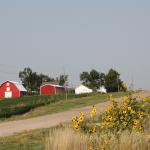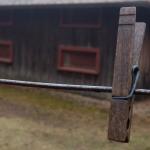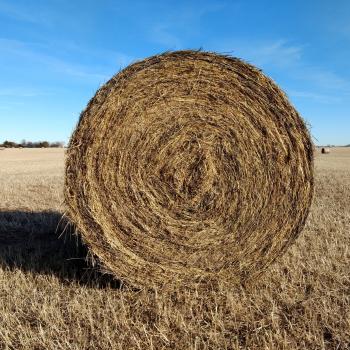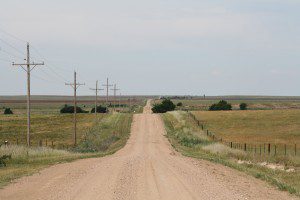
When we first moved to rural Kansas, we had to get our bearings. Each time my wife and I would go pay a visit to someone in the congregation, we would plug their address into our old dashboard GPS. And we would get this warning: “Your destination is on an unpaved road. Are you sure you want to go there?” (Or something like that). I don’t know if the GPS device was warning us against the dust clinging to our car or what. We would respond, Yes, we want to go there! It’s rural Kansas! What do you expect–New York City?
That GPS warning feels a little like where we’re at in rural America. There are powerful currents drawing people away from rural. The story of rural America is not all a story of decline. There are many rural communities have held their own or are even growing, especially if they happen to be located near thriving cities or gorgeous natural amenities. But there are also many rural communities that have lost people, that struggle to support a mom-and-pop grocery store, where the school was consolidated with the rest of the county. And so when many in our society plug that rural address in, the alarms of their cultural GPS go off. Your destination is on an unpaved road! Are you sure you want to go there?
The same thing happens when we talk about the church.
How do we form pastors and leaders who are not afraid to go down those unpaved roads–who even want to go down them?
I think it will mean doing the work of helping people understand and value rural cultures: the ins-and-outs of rural community, the structure of interrelatedness (I had never heard of “double first cousins” until we moved to Kansas). It will mean helping them understand the role and rhythms of agriculture. But those are technical challenges. Those things aren’t hard to pick up if you’ve got a ready mind and ears to hear.
I’m convinced that above all else, training pastors and leaders for the rural church requires us to do the work of forming hearts. It’s about shaping pastors and leaders who can come with a heart of friendship and a sense of mission for rural people and communities.
“Friendship” has been the key image for me when I think about rural ministry. Jesus teaches that we are to love one another. But love is often a challenge for us to get right. What exactly does it mean to love one another? We don’t always know. But on the night Jesus was betrayed, in the upper room as he was eating with his disciples, he said to them “I no longer call you servants, but friends” (John 15:15). Jesus knew his time was short. The cross loomed before him. There was so much he needed to talk about with them. And Jesus chose to talk about friendship. I think Jesus did that because he wanted to make sure that his disciples–and all the rest of us–got it. Friendship makes love concrete.
The reason I’ve experienced friendship as a key image in rural ministry is because so often, rural communities fall under the sway of our society’s disordered valuations that privilege what is big, fast, and often urban, and disparage what is small, remote and often rural. If all roads lead to Rome, then that’s where many want to go–not out into the sticks, bumping along on some anonymous unpaved road.
Some folks were visiting us the other day, and as we drove past miles of greening wheat, they looked over at me and said, “Wow, we’re in the middle of nowhere.” Borrowing a line I heard from a friend (and maybe with a bit of melodrama), I responded, “It’s somewhere for us.”
Rural communities are somewhere to we who live in them, somewhere to God. But nevertheless, that sense that we’re in the middle of nowhere can sometimes lead to a diminished sense of significance and self-worth among rural communities. We see this in the church every time there’s a pastor transition. The question that crops up is, “will we ever be able to find another pastor willing to come out here, or is this the end for us?”
Friendship with rural is a countersign to our society’s dominant value systems. It reminds us of Christ’s commitment to be among all people everywhere.
In rural communities, I think we live that friendship out with individuals, connecting with people, hearing their stories, caring for them without wanting anything. Friendship keeps us from turning others into our projects, because friendship makes us human beings to one another.
We met some folks a couple of years ago. We knew they had just moved to town, and we went up and knocked on their door. We started to see them around town and our relationship began to develop. They responded to our invitation to come to church, and as their family continued to grow, we dropped by with a meal. They said, “Next time, just come in the back door. It’s not locked. That’s where friends come in.”
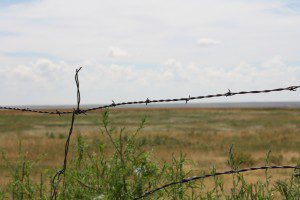
I’m also convinced that we also need to form pastors and leaders for friendship with the rural community as a whole. The theological term for this is “solidarity.” We live in solidarity with rural communities, working for the common good. It’s the apostle Paul’s words in Galatians 6:10, “whenever we have an opportunity, let us work for the good of all, and especially for those of the family of faith.” This means seeing the good of the church as bound up with the good of the whole community. It’s recognizing that the rural church cannot thrive unless the rural community thrives.
I talked to a pastor who described how he purchased and began renovating an old downtown storefront in his small town. As he muds in walls and hangs new cabinets to turn the building into apartments, people have expressed their interest and approval. The community has experienced his project as an act of caring for the common good. It’s a project of community friendship.
Pastors and church leaders have a lot on their plates. We won’t all necessarily become community organizers. But we will want to start developing a vision of ministry to and out in the community.
Ultimately, friendship with people and community is rooted in friendship with God. I’ve discovered a little prayer created by the folks at Catholic Rural Life. The prayer addresses God as the “Creator who sustains all Your creatures with food, drink and friendship.” I love that the third element is “friendship”–with one another and with God. Friendship is right up there with food and drink, something absolutely necessary. Friendship sustains our existence.
That’s the friendship that we’re seeking to live out, and to form pastors and leaders in. It’s forming them in love, a love discovered in the gospel proclaimed and the sacraments celebrated, but also in the ancient disciplines of listening and comforting, counseling and instructing, admonishing, forgiving, and praying for others.
Ultimately, I think we want to get to the place where we aren’t loving rural people and communities as an outsider looking in, but as someone who is a part of the communities we value, who comes from within, who has skin in the game. The Word put on flesh and dwelt among us. In our own small way, we start to live the incarnation in our rural neighborhoods.
We get familiar with those unpaved roads the GPS was warning about. We become pastors and leaders who have the dust of unpaved roads under our nails and clinging to our feet. Slowly, without our even noticing, the track of those unpaved roads gets etched on our hearts. We discover that somewhere along the way–by miracle and mercy–we’ve been made from that dust.
I presented an earlier version of this post at the Catholic Rural Life conference in St. Paul, Minnesota.

